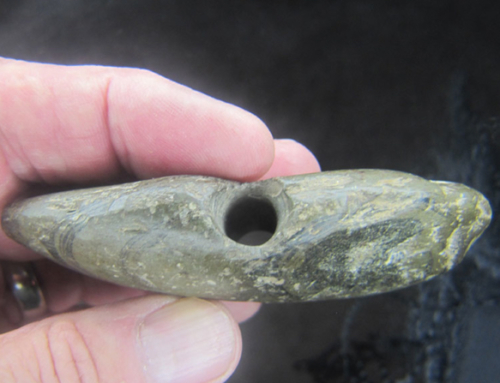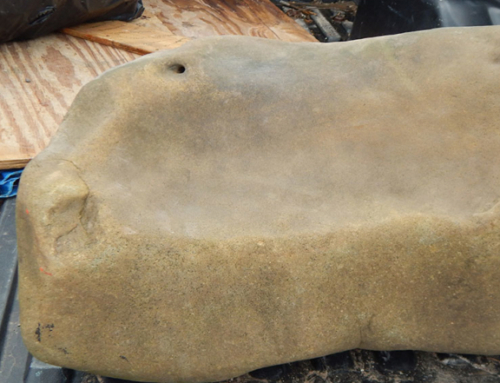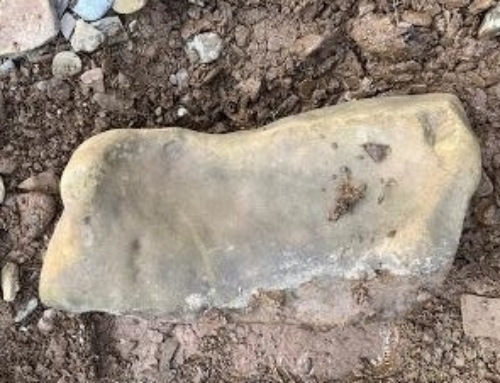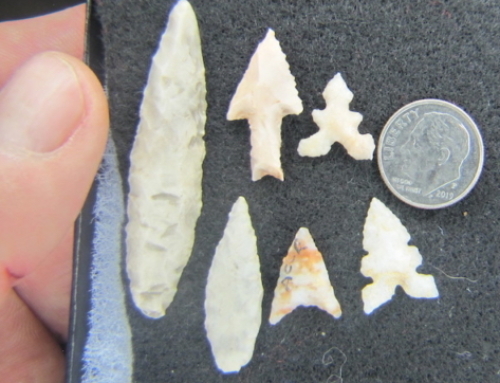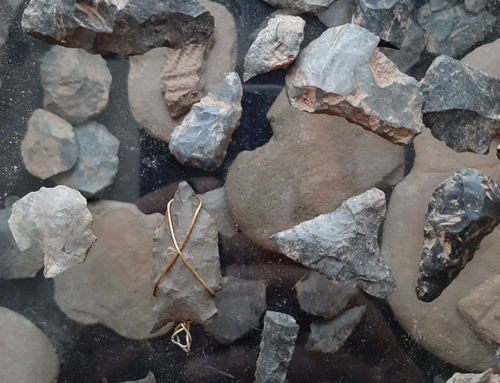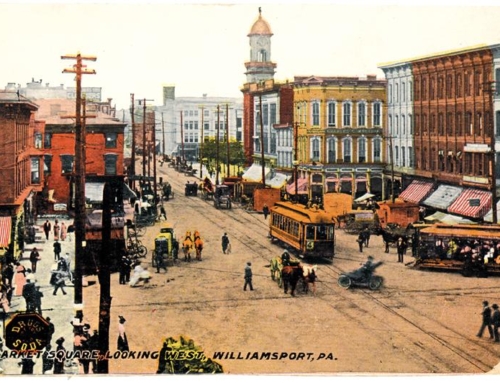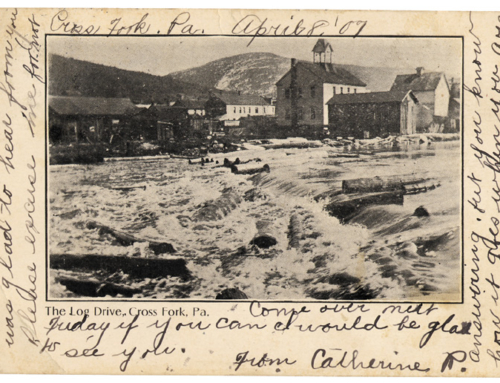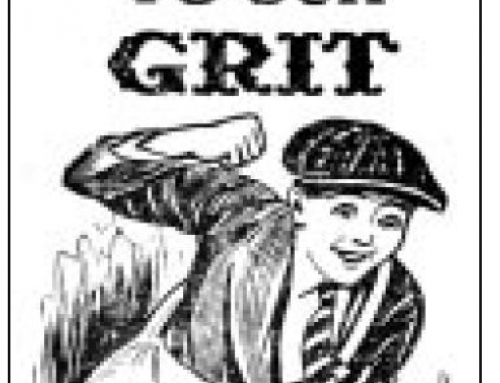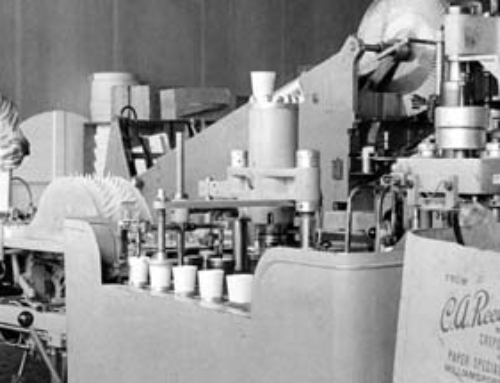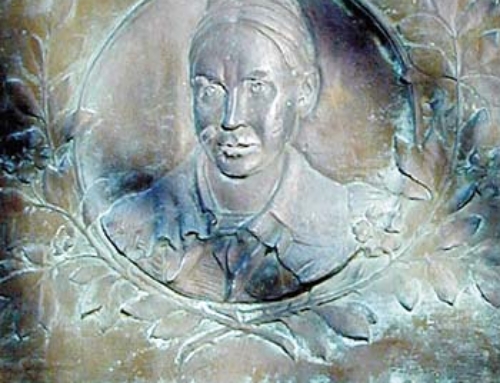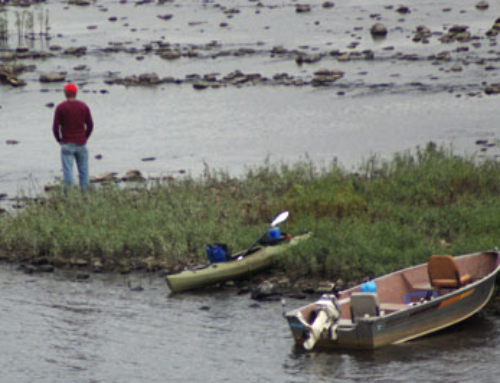The story of the Underground Railroad in Lycoming County includes many heroic and courageous persons, but none towers over the story so literally and figuratively as Daniel Hughes.
The Underground Railroad ran from the American South through the northeastern states to Canada from the 1790s until the Civil War. Because of its strategic location, Lycoming County was one of the most important stops on the road to freedom for escaping slaves. There were two main centers of Underground Railroad activity in Lycoming County: the Pennsdale-Muncy area and the area where Daniel Hughes lived just north of the city of Williamsport, known today as “Freedom Road.”
Hughes was a man of towering stature, standing between six feet seven inches and six feet ten inches and weighing approximately 300 pounds. He moved to the Williamsport area in 1828 and married Ann Rotch, an African-American woman.
Hughes’ occupation as a lumber river raftsman operating on the Susquehanna River between Williamsport and the Havre de Grace, Maryland area was the means that enabled him to become involved in smuggling escaped slaves along the Underground Railroad to Williamsport. He then would hide the fugitive slaves at his house in the vine-covered, woods-covered area northwest of Williamsport. It was a natural haven. The haven aspect was further reinforced by a series of caves located on and near the Hughes property that also served as a refuge for the runaway slaves.
It took great courage and resourcefulness to “conduct” these escaped slaves along the Underground Railroad. Hughes, his wife, and 16 children exposed themselves to significant risk in their quest to help the slaves “Follow the North Star to Freedom” or, as an old Underground Railroad song stated, “Follow the Drinking Gourd.” It was against the law to assist runaway slaves, punishable by imprisonment and fines. Also, many people in the area were unsympathetic to the runaways’ plight, and Hughes and others who aided them were subject to harassment and possibly physical violence or even death.
Hughes would often operate on moonless nights, significantly lessening the possibility of detection by the always-present slave catchers. The slave catchers became more of a hazard after the passage of the “Fugitive Slave Act of 1850,” which allowed slave catchers to operate in the northern states with no legal restrictions. Hughes and his sons often stretched horsehair from one side of the trails to the other to help thwart the slave catchers, hoping to catch these bounties that were hunting them off guard as they traveled by horse. As the slave catchers came to these areas, they would be knocked from their horses and either slowed down or deterred from continuing.
Hughes’s son Robert remembered these times many years later and reminisced as an old man, stating, “We would hide them in the woods in brush houses. I was just a little boy, but I remember carrying meals out to them in the woods very well. They usually traveled in groups of two or three men.”
He continued, “Often patrollers would come to our place looking for runaways. They never caught anyone at our place. Rich people and good church people in Williamsport, mostly Quakers helped in the work.”
Hughes and his son would conduct the runaways to the next station in Trout Run as they made their way north to Elmira and eventually into Canada, where the runaways were not subject to the “Fugitive Slave Act.” The Hugheses contributed further to the African-American community by donating a portion of their land as a cemetery for African Americans. Among those buried in the cemetery are nine African-American Civil War veterans. There is a Pennsylvania Historical Marker at the cemetery site, and Loyalsock Township has recently taken over maintenance.
The story of Hughes and the other courageous Lycoming Countians who participated in helping with the Underground Railroad is detailed in an excellent documentary film. “Follow the North Star to Freedom,” made by area documentary maker Karen Frock. Interestingly enough, one of the primary persons assisting Frock in the film was Mamie Sweeting Diggs, the great-granddaughter of Daniel Hughes. She has spoken far and wide, preserving her special great-grandfather’s courageous legacy and story.
By Lou Hunsinger Jr., Williamsport Sun-Gazette
Ready for a Challenge?
Have even more fun when you accept the 21-Day Writing Sprint Challenge. This process is one I use every semester with my college students, so I know it can kickstart your creativity and introduce structure to your writing schedule. When you join my Circle of Writers & Authors, you’ll receive FREE writing resources, and you’ll sign up for my newsletter. I will not sell your information, or spam you. I will send you updates about new articles and podcasts I’ve created, and projects I’m working on. You can unsubscribe at anytime. Read my Privacy Policy here.
Wholehearted Author is for you if you are …
- Starting out as a writer and could use some guidance
- Wanting to be inspired to create and publish your book
- Looking for like-minded, happy people and helpful mentors
- Hoping to turn your writing into a full-time, awesome career
- New to the concept of “permission marketing” but willing to try
CATCH THE WEST WIND
Add WEST WIND to your library!
If you love a good mystery, a romantic whodunit that will surprise you, then WEST WIND is a great addition to your ebook library.
West Wind is my third novel as an author of Contemporary Fiction, Suspense, Thriller, and Romance. It’s FREE too, when you join my exclusive Readers Group. Join today and download your free book, and as a special thank you, you’ll receive a SECOND FREE BOOK tomorrow! The giving goes on and on when you become my fan.
When you join my Readers Group, you’ll receive updates about new projects I’m working on. You can unsubscribe at anytime. Read my Privacy Policy here.






